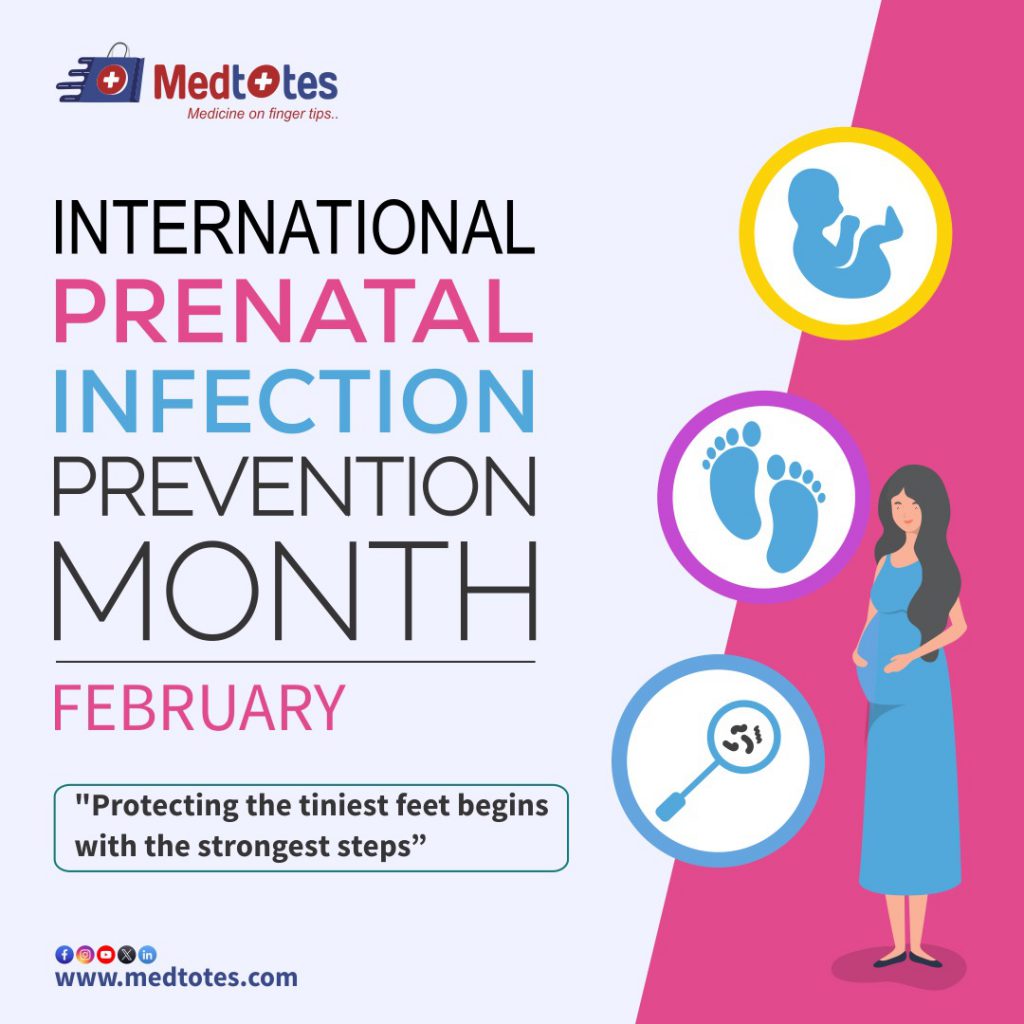I. Introduction
Prenatal infections are infections that occur during pregnancy and can pose serious risks to both the mother and the developing baby. Infections can be caused by viruses, bacteria, or parasites and can lead to complications such as preterm birth, birth defects, or even miscarriage. International Prenatal Infection Prevention Month, observed in the month of February, aims to raise awareness about the importance of preventing these infections through education, vaccination, and proper hygiene practices. By focusing on prevention, we can ensure the health and well-being of both mothers and babies worldwide.

II.Common Prenatal Infections
- Rubella: Rubella, also known as German measles, can cause severe birth defects if a woman becomes infected during pregnancy. Vaccination before pregnancy is the best way to prevent this infection.
- Cytomegalovirus (CMV): CMV is a common virus that can be transmitted to the baby during pregnancy, leading to hearing loss, developmental delays, and other complications. Practicing good hand hygiene and avoiding contact with bodily fluids can help reduce the risk of infection.
- Toxoplasmosis: Toxoplasmosis is an infection caused by a parasite found in contaminated soil or under-cooked meat. Pregnant women should avoid changing cat litter and ensure that all meat is thoroughly cooked to prevent this infection.
- Group B Streptococcus (GBS): GBS is a type of bacteria that can be transmitted to the baby during childbirth, leading to serious infections. Pregnant women are routinely screened for GBS and, if positive, will be given antibiotics during labor to reduce the risk of transmission.
- Zika virus: Zika virus is primarily transmitted through mosquito bites, but it can also be sexually transmitted or passed from a pregnant woman to her fetus. Pregnant women should take precautions to avoid mosquito bites, practice safe sex, and consider postponing travel to areas with a high risk of Zika transmission.
- HIV/AIDS: HIV can be transmitted from mother to child during pregnancy, childbirth, or breastfeeding. Pregnant women with HIV should receive antiretroviral therapy to prevent transmission to their babies. Additionally, practicing safe sex and avoiding sharing needles can reduce the risk of acquiring HIV.
- Cytomegalovirus (CMV): CMV is a common virus that can cause severe complications in babies if transmitted during pregnancy. Pregnant women should practice good hygiene, such as frequent hand washing, to avoid contact with CMV-infected bodily fluids, especially from young children, who are more likely to carry the virus.
III. SYMPTOMS of Prenatal Infections
- Prenatal infections can have various symptoms, depending on the specific infection.
- Some common symptoms of prenatal infections include fever, rash, fatigue, body aches, and swollen lymph nodes.
- In more severe cases, prenatal infections can cause complications such as miscarriage, stillbirth, or developmental issues in the baby.
- It is important for pregnant women to seek medical attention if they experience any symptoms of prenatal infections to receive appropriate treatment and prevent potential harm to themselves and their babies.
- Other symptoms of prenatal infections may include headaches, sore throats, and vomiting.
- Some specific prenatal infections, such as the Zika virus, may also cause birth defects in the baby.
- Prenatal infections can also lead to premature birth or low birth weight.
- Prompt treatment of prenatal infections can help reduce the risk of complications and ensure a healthier outcome for both the mother and the baby.
- It is crucial for pregnant women to practice good hygiene and take necessary precautions to prevent infections during pregnancy.
IV. Treatment Options
- Bacterial infections, like urinary tract infections or sexually transmitted infections, may require antibiotics for treatment.
- Viral infections, such as herpes or HIV, might necessitate the use of antiviral medications.
- Fungal infections, like yeast infections, could be addressed with antifungal medications.
- Sometimes, medications aimed at reducing fever or managing symptoms may be prescribed.
- Severe cases may require hospitalization for close monitoring and intravenous administration of medications.
- Regular prenatal check-ups and screenings play a crucial role in the early identification and treatment of infections.
- It’s essential for pregnant women to adhere to their healthcare provider’s instructions and complete the full course of prescribed medications for effective treatment.
- Pregnant women are advised to steer clear of individuals with contagious infections and maintain a healthy lifestyle to bolster their immune systems.
VI. Conclusion
In conclusion, Prenatal infections during pregnancy can be treated with medications like antiviral drugs or antibiotics. Pregnant women should work closely with healthcare providers for appropriate treatment and monitoring, and hospitalization may be necessary for specialized care.
Download our app: https://bit.ly/3tkQkFy
